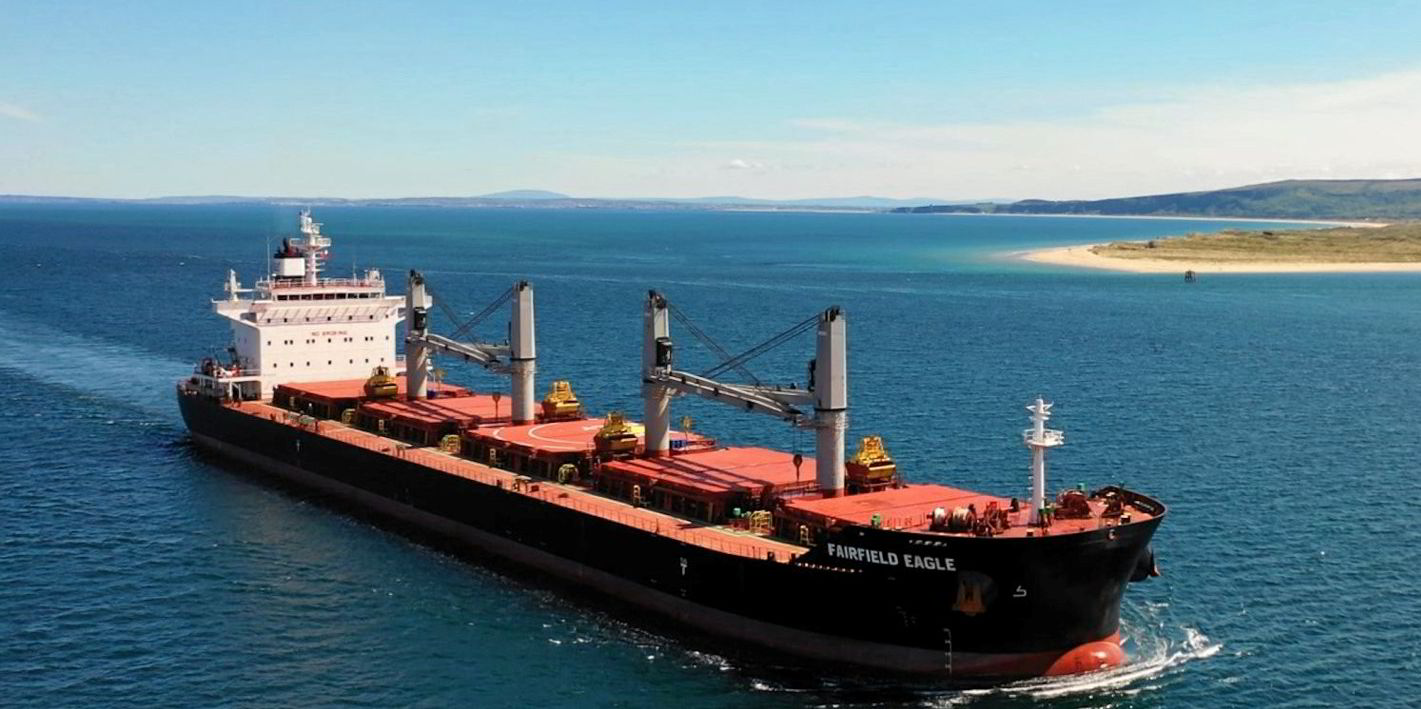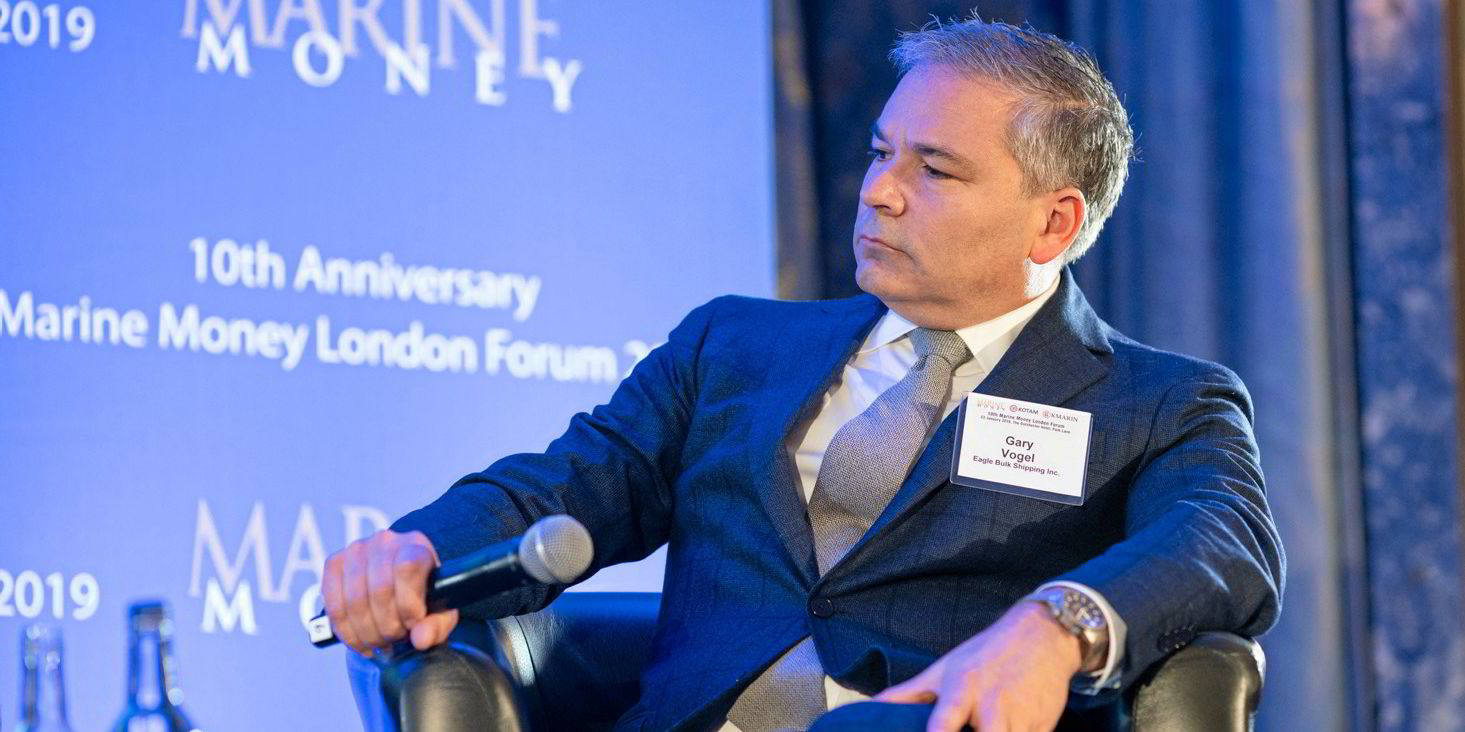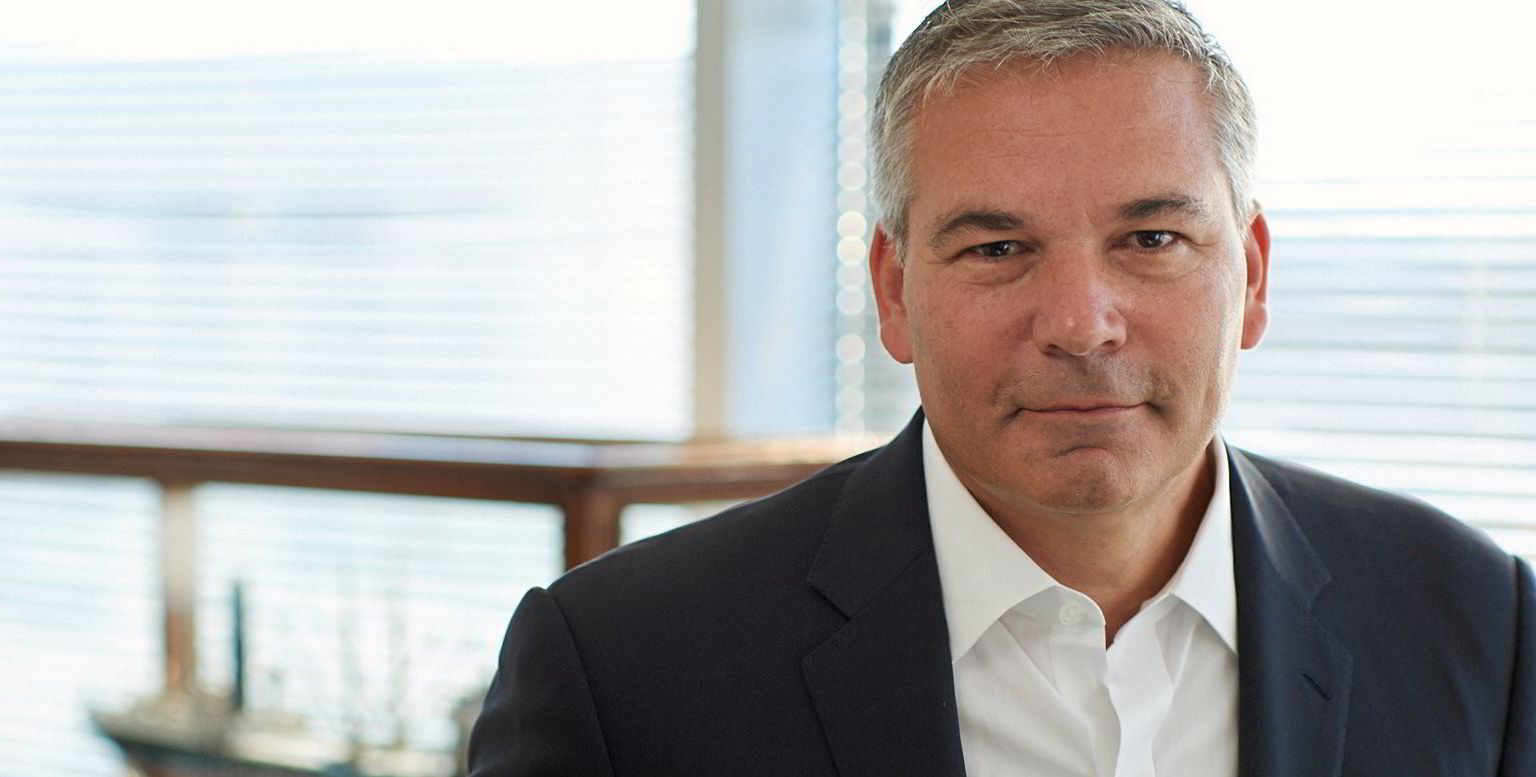Gary Vogel said upon his arrival at Eagle Bulk Shipping in 2015 that the world had enough dry bulk ships, then made good on his pledge not to add to the number through newbuildings.
All 29 sale-and-purchase acquisitions over that time have involved secondhand tonnage.
But as Vogel eyes a changing world and the increasing push for decarbonisation in vessel emissions, he does see prospects for newbuilding orders — eventually.
“Look, at some point when there’s an opportunity for zero-emissions vessels and there’s clarity around the commercial aspect of it, I think it would be very interesting,” he said. “I don’t think it’s unlikely that the next newbuilding Eagle orders could be one of the zero-emissions ships of the future.
“But we need a lot more clarity around that. Of course there is the technology aspect that needs to be solved. But as important is the question of fuel cost competitiveness and future fuel supply chains. It’s far more challenging in the midsize segment where our vessels call on literally hundreds of ports each year.”
So as Eagle Bulk weighs further expansion of its fleet, it is likely to return to its sweet spot: ultramax bulkers under five years old.
“If you order a ship today, that’s delivering in say 2024, that ship will only be 11 years old in 2035,” he said. “Meaning, from an historic standpoint, it has another 15 or 16 years from 2035 to 2050 with a very uncertain regulatory environment regarding decarbonisation.
“So we have focused and will continue to focus on secondhand acquisitions in the 2015 to 2018 range.”
Eagle Bulk's fleet is about 20% larger than when Vogel took the helm at 53 units, making it the largest US-listed owner of midsize geared tonnage. But it would be larger still if not for a strategic decision to shed 20 older supramax units.
It now has only two such units older than 12 years, and Vogel said they are likely to be sold ahead of their next survey dates in 2020.
“Now future acquisitions don’t need to be paired with further sales, so I think you could see the fleet growing rather than just renewing with slow growth,” Vogel said.






